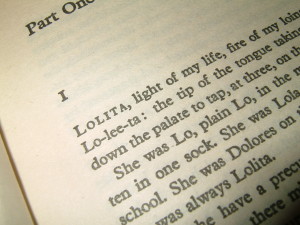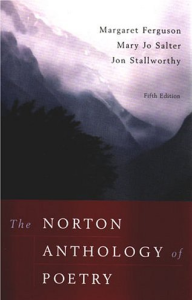How Studying Poetry Made Me a Better Writer

The Writer and the Poet.
I consider myself a prose writer, which makes sense given that I write exclusively in prose these days. But this wasn’t always the case -- for a long time I wrote poetry, and was considered a poet. About half the lit classes I took in college focused on poetry, I graduated from my school’s creative writing program as a poet, and for a few years afterwards poetry was my preferred medium.
This tends to really shock people I’ve gotten to know since then, to a degree that I find shocking. Why is the idea that a writer would start in one discipline and shift to another so surprising? I think it has to do with the fact that the average person, and even the average writer, finds poetry to be a completely alien (and let’s face it: inaccessible) literary form. And it can be very different, depending on your style. Poetry doesn’t need to have a narrative (though it can) and it allows for, and often encourages, a much bolder and more abstract way of using language.
Poetry places heavy emphasis on the aesthetic properties of language as a way of communicating emotion and suggesting meaning. “Aesthetic properties” encompasses a lot, but some of the big ones are: visual imagery and other intense sensory information; the rhythmic structure of lines, sentences, phrases, and even individual words; and the sound of the writing when read aloud (or even in your head). Because poems usually use so many fewer words than stories and essays, each word must do as much work as possible and as such must be very carefully chosen.

In poetry workshops like the ones I took in college, you spend a lot of time dealing with these kinds of aesthetic concerns, rather than focusing on fiction elements like narrative structure, character, and dialogue. However, if you think these more “poetic” devices are of secondary importance to prose writers, you are dead wrong. As a writer of any kind at all, you need to communicate as effectively and precisely as possible with your reader, and your number one communication tool isn’t character, or plot, or setting, or underlying thematic material – it’s the language you’re writing in.
Deploying language effectively is part of how you pull your reader in and train their attention – often subconsciously – on the things you want them to notice and the emotions you want them to feel. Studying poetry taught me how to search for unique, unexpected words and phrases to convey potent sensory information. I learned that using multi-syllabic Latinate words creates a feeling of formality, while shorter words and colloquial speech will read as much more casual and off-the-cuff (even if you’ve in fact labored over every word choice!).
I learned that long sentences with few commas speed the reader up, short sentences slow the reader down, and following a long sentence with an incredibly concise one causes the reader’s mind “land” on the short sentence, making it much more powerful. I learned that assonance (stringing together words with similar vowel-sounds) often has a soothing, musical effect and that a lot of sharp, alliterative consonants can wake people up and have an humorous or jarring effect. I learned that how you end things – whether it’s the last word in a sentence, or the last sentence in a paragraph, or the last paragraph in a chapter – is really, really, really important.
Despite the fact that it’s been ten years since I took a poetry class, these skills are still deeply ingrained in the way I use language, especially when I’m writing a creative piece. So while there were certain storytelling skills I had to develop when I began to write fiction, other important skills were already second nature. Learning how aesthetic choices can affect your reader’s experience gives you the tools needed for subtler (but no less essential!) components of fiction writing such as description, atmosphere, mood, and tone – the elements that derive not so much from what you say as from how you say it, and which are absolutely essential to immersing the reader in your story and world.

So, you want to become a great fiction writer? Learn a bit about poetry. Pick up a contemporary anthology (like the Norton Anthology or the annual Best American Poetry) and skim through until you find a writer or two whose work makes an impression. Then pick up those poets’ collections (or look for their work online) and try to analyze the way they use language, and why it works for you. Read a couple of books about craft – A Poetry Handbook by Mary Oliver is perennially popular.
Or if you’re feeling really adventurous, sign up for a workshop. Many cities and towns have writing programs for adults that include a poetry class, and you can also take all sorts of courses online. Even if poetry ultimately isn’t your thing (though I think poetry can be anybody’s thing, once they stop being so scared of it), you’ll be amazed at what it can teach you about being a writer.
Photo credits: alice, Photocapy from flickr.




